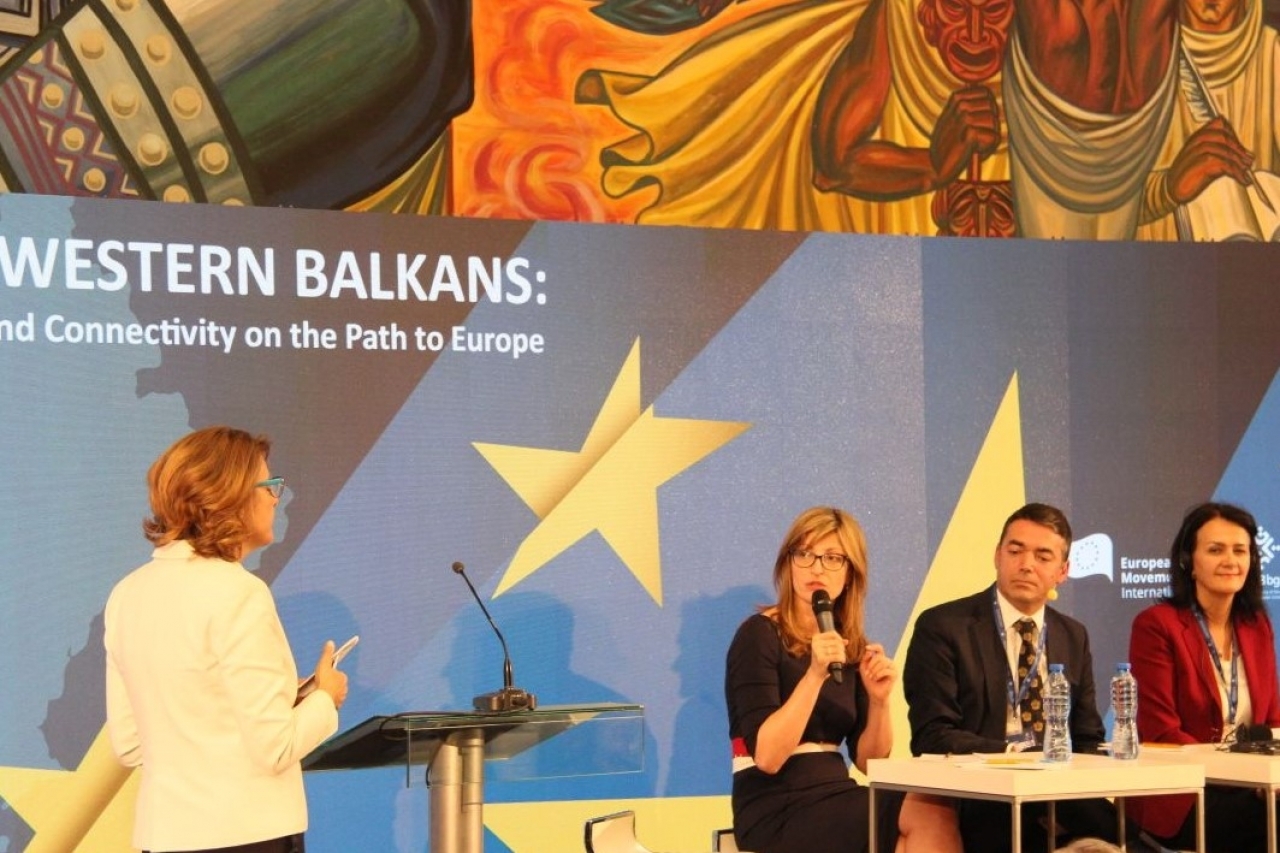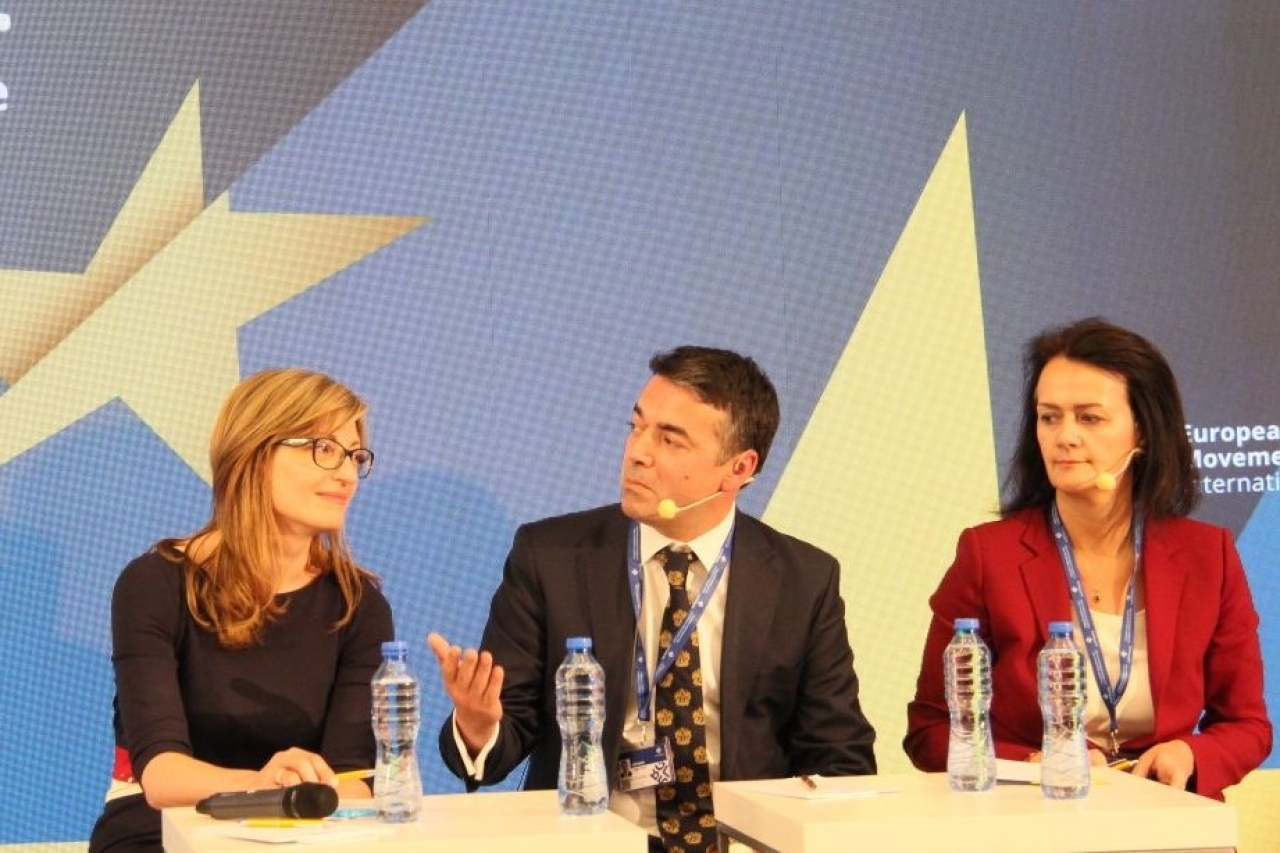Ekaterina Zaharieva: Together We Must Keep Convincing the Sceptics that the Western Balkans Belong to the EU
16 May 2018 News
“When as politicians, representatives of the civil society and the business community we come together, it is very important that we openly discuss what we can do about the future of the Western Balkans,” Deputy Prime Minister Ekaterina Zaharieva said at the conference titled “In Dialogue with the Western Balkans: Creating a Region of Growth, Security and Connectivity on the Path to Europe”, held by the European Council on Foreign Relations (ECFR) and the Centre for European Studies.
Zaharieva was one of the main spokespeople at the forum, which is part of a discussion panel on the topic of “European Perspective of the Western Balkans”. Nikola Dimitrov, Minister of Foreign Affairs of the fYRepublic of Macedonia and Angelina Eichhorst, European External Action ServiceDirector for Western Europe, Western Balkans and Turkey also took part in the discussions.
Addressing the audience, Ekaterina Zaharieva pointed out that public opinion polls showed that the EU citizens still have diverging opinions on the European perspective of the Western Balkan countries, with almost equal percentages “in favour” and “against”. “We are yet to convince everyone in the EU. There is some opposition to rapid enlargement, but no one is against enlargement as a whole. Endless postponement, however, will not only demotivate, but also frustrate and possibly anger the citizens of the Western Balkan countries,” the Bulgarian Foreign Minister commented.
According to Zaharieva, the concerns of some of the Member States are related to worries that the countries from the region might bring problems that they had among themselves in the past into the Union and use them in discussions on matters that concern all European citizens. In this respect the Foreign Minister stressed that the Western Balkan countries should demonstrate maturity, an ability to cooperate and solve issues, and carry out reforms. “We must show that we live in the present and not in the wrong century,” Ekaterina Zaharieva supported the words of her Macedonian counterpart, Nikola Dimitrov. However, she explicitly stated her position that the transformation process lies fully in the hands of the countries from the region.
Deputy Prime Minister Zaharieva was optimistic about the chances for a 2025 European perspective for the fYRepublic of Macedonia and Albania, but emphasised that this would not be easy to achieve. “This will not be a simple task, but we have time to convince the countries that are still sceptical,” she said.
Ekaterina Zaharieva also shared her expectations about the Sofia Summit, pointing to the differences in the present context compared to the Thessaloniki Summit 15 years ago. “In 2003, none of the countries was a candidate. I can see what we have actually achieved together – a completely different EU attitude to enlargement,” the Foreign Minister said. She was convinced that specific decisions on funding projects will be made at the Summit, which is going to be attended by all leaders, and the European perspective of the Western Balkans will be supported with clear programmes which bring about progress.
Minister Zaharieva stressed it is important that the countries from the region participate in the discussions on our mutual future and in the decision making process. “Together we must strive to keep the people from leaving the Western Balkans and address the nationalistic attitudes. Together with the people from the region, we must keep convincing the sceptics that the Western Balkans belong to the EU,” Ekaterina Zaharieva added.


